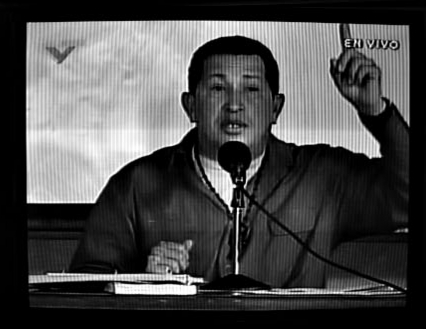As Venezuela prepares to mark the 10th anniversary of its Bolivarian Revolution, Hugo Chávez has little cause for celebration. His stewardship of the state economy has largely resulted in failure: Income inequality is on the rise while inflation has skyrocketed to nearly 30 percent. Basic food staples -- such as milk, eggs, and meat -- are scarce, raising fears of a looming food crisis. Violence is rife. Venezuela's murder rate has grown so ruinous -- with more than12,000 homicides in 2007 -- that the country no longer releases official data. On the political front, matters are equally troubling. In the last year alone, Venezuela threatened war with neighboring Colombia, repeatedly rattled its saber at the United States, and fought off internal disturbances from burgeoning secessionist movements. Public confidence in the Bolivarian regime is quickly evaporating. The clearest indication came this past December when voters dealt Chávez his first electoral defeat in a referendum that would have significantly expanded presidential powers. Since the beginning of 2008, according to a survey published by Datos pollsters, the popularity of Chávez's Bolivarian government has declined 34 percent, a sharp departure from already sagging popularity ratings at the end of 2007. With the country suffering under the weight of political turbulence and a deteriorating economy, Venezuela's November's nationwide gubernatorial elections -- the most significant moment in Chávez's presidency since the failed coup that briefly jettisoned him from power in 2002 -- could produce a dramatic shift in the balance of national power. "The once surefooted Mr. Chávez is losing his way," announced the Economist in early August. "A big defeat for Mr. Chávez's supporters looks increasingly plausible." Yet in all likelihood, these assessments are premature. Chávez will escape the impending vote with minor losses.
Despite Growing Opposition, Chavistas Will Escape Elections with Minor Losses

